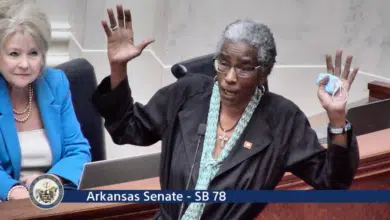The Arkansas House of Representatives will be selecting a new Speaker of the House. The current Speaker, Matthew Shepherd, chose not to run for Speaker this time after an unprecedented three terms in that position.
Who will the House members select? With Republicans holding an overwhelming majority of seats in the House of Representatives, the one thing we can safely say is the next Speaker will again be a Republican.
Representatives will be weighing many political considerations along with the ability of the candidates to be good leaders. Where the candidates stand on modifying House Rules and policies may not be on anyone’s list. But for those Representatives who want to modify House Rules and policies, the time to secure commitments for change is during the process of choosing a Speaker. Waiting to propose change when the legislative session begins is always too late.
Here are some House Rule issues that have been hot topics in the recent past.
- APPOINTMENT OF CHAIRS AND VICE CHAIRS. Under current rules, the Speaker appoints the chairs and vice chairs of committees and subcommittees. This makes the Speaker very powerful because many members of the House become beholden to the Speaker for appointments to leadership positions. While this is a good way for a Speaker to amass great power, the rule is not good for the members of the House as a whole. The only time to secure such a change is while there is no incumbent Speaker running. Are Speaker candidates willing to support a rule change to return the appointment power back to each committee to choose its own officers?
- APPOINTMENT OF RULES COMMITTEE MEMBERS. All of the members of the House Rules Committee are appointed by the Speaker. This rule has been a hot topic for two reasons. First, when a House member appeals a ruling of the Speaker to the Rules Committee, it is a waste of time because all the members were appointed by the Speaker. Second, when the Speaker chooses to assign a bill to the Rules Committee, the Speaker’s opinion of the bill matters most on whether the bill passes or fails. Will Speaker candidates support changing the process for selecting the Rules Committee so that members don’t have to go against such a big home field advantage for the Speaker?
- COMMITTEE VOICE VOTES. Committee votes are by voice vote unless a roll call is requested. There are times when the results of the voice vote are in question or the Chair makes an apparent wrong call. During the past two regular sessions many Representatives and even Senators were upset and frustrated with a House committee chair who made a controversial call on a voice vote and then quickly adjourned the committee to avoid “hearing” the calls of committee members for a roll call vote. Voice votes only favor cowards who want to hide their votes from their constituents. Roll call votes are more precise, avoid abuses of the voting process, and are not a burden on the length of a committee meeting. Making all committee votes on bills a roll call vote is the best solution. Does the candidate for Speaker favor all committee votes on bills being by roll call vote?
In addition to the hot topics of the recent past, here are a couple of policy changes members of the public have been asking for to make the House proceedings more transparent.
- HAS THE COMMITTEE CONSIDERED A BILL? When a bill is considered in committee there is no notation on the bill’s internet history that the bill has been discussed, except when the bill gets a “do pass” recommendation by the committee. A member of the public who is interested in a bill has no reasonable way of discovering whether a bill has been discussed in committee or whether the bill was discussed but failed to get enough votes for a “do pass” recommendation. Even a member of the House will not know whether a bill was discussed unless the Representative was present or asked someone who was there. A member of the public who wants to know must spend much time skimming through the videos of every meeting of the committee until they find the discussion. A Speaker can easily fix the problem by directing staff to provide the information for internet display. Is any Speaker candidate interested in transparency and public access?
- POSTING OF COMMITTEE ROLL CALL VOTES. Most citizens will be unaware of a roll call vote taken in committee because the vote is not posted on the bill history. If a citizen is lucky enough to hear there has been a roll call vote, he or she must then go to the extra step of using the Freedom of Information Act (FOIA) to request a copy of the roll call vote from legislative staff. Posting the result of a committee roll call vote on the internet bill history would be easy for committee staff to accomplish and less effort for them than having to answer FOIA requests for the vote record. A Speaker could simply direct staff to start posting the vote. Again, is any speaker candidate interested in transparency and public access?
While these things may not be among the biggest factors in choosing a Speaker, if change is to be made, now is the time. We think support for these changes would be the mark of a good Speaker of the House.






